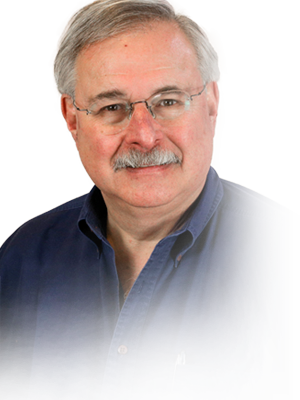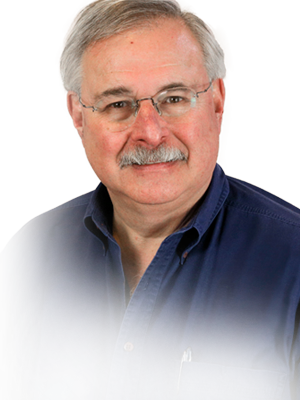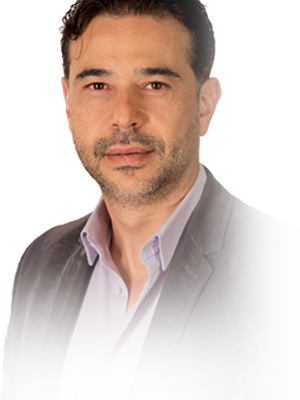

Jeffrey A. Allen, MD
-
 16:21Wear-Off in IVIG and What it Means in Clinical PracticeLearn about wear-off effects in patients with CIDP, the tools available to monitor them, and the methods to combat them and tailor treatment to the patient.
16:21Wear-Off in IVIG and What it Means in Clinical PracticeLearn about wear-off effects in patients with CIDP, the tools available to monitor them, and the methods to combat them and tailor treatment to the patient. -
 12:30Improving CIDP Diagnosis: The Challenges of Under and Over DiagnosisUnderstand the challenges associated with accurately diagnosing CIDP
12:30Improving CIDP Diagnosis: The Challenges of Under and Over DiagnosisUnderstand the challenges associated with accurately diagnosing CIDP -
 12:50Optimizing IgG Therapy in Chronic Autoimmune NeuropathiesReview options for individualizing treatment and tools used to assess IgG performance
12:50Optimizing IgG Therapy in Chronic Autoimmune NeuropathiesReview options for individualizing treatment and tools used to assess IgG performance -
 01:52CIDP Assessment Tools: Grip StrengthListen to a discussion about Discussing tools that are commonly used to measure grip strength in CIDP
01:52CIDP Assessment Tools: Grip StrengthListen to a discussion about Discussing tools that are commonly used to measure grip strength in CIDP -
 12:15The GRIPPER study: Quantifying IVIG Treatment-Related Fluctuations in CIDP Using Daily Grip Strength MeasurementsLearn more about grip strength as an outcome measure in CIDP and how it is utilized in the Gripper Study as a daily measure of treatment-related fluctuations in IVIg-treated patients.
12:15The GRIPPER study: Quantifying IVIG Treatment-Related Fluctuations in CIDP Using Daily Grip Strength MeasurementsLearn more about grip strength as an outcome measure in CIDP and how it is utilized in the Gripper Study as a daily measure of treatment-related fluctuations in IVIg-treated patients.


Mel Berger, MD, PhD
Mel Berger is a Senior Director, Medical Research Strategy at CSL and Adjunct Professor of Pediatrics and Pathology, Case Western Reserve University. He earned his undergraduate, medical and PhD (in Biochemistry) degrees at Case Western Reserve University in Cleveland. He completed his internship and residency in pediatrics at Boston ChildrenÔÇÖs Hospital. He did an allergy-clinical immunology fellowship at NIH, and is Board Certified in Pediatrics and Allergy-Immunology. He served as Assistant Chief of Allergy-Immunology at Walter Reed Army Medical Center and had an initial faculty appointment at the Uniformed Services University of Health Sciences.
In 1984, he returned to Cleveland and joined the faculty of Case Western Reserve as Chief of the Division of Allergy-Immunology at Rainbow, Babies and ChildrenÔÇÖs Hospital and he rose to Professor of Pediatrics, Pathology and General Medical Sciences (Oncology). In 2008, Dr. Berger joined CSL Behring, but he continues to hold a faculty appointment at Case. He served for more than 20 years in the US Army and Army Reserve, including commanding a hospital unit during the peace effort in former Yugoslavia, and retired from the Army as a Colonel.
Dr. Berger's research has focused on control of inflammatory responses and on antigen-antibody and complement interactions, particularly in primary immune deficiency diseases and cystic fibrosis. He has been a leader in research on the clinical use of immunoglobulins and played a key role in developing the use of portable pumps to give IgG subcutaneously. He has published more than 100 peer-reviewed papers on his research, as well as numerous chapters and review articles.
Dr. Berger is a Fellow of the American Academy of Allergy Asthma and Immunology, the American Pediatric Society, and the American Academy of Pediatrics. He has been elected to the American Society for Clinical Investigation and the Society for Pediatric Research, and has served as a Director of the American Board of Allergy and Immunology and on numerous FDA and NIH panels.
-
 8:25Consistency Over Time of Strength and Disability Measurements in Patients with CIDP on Stable IgG Therapy
8:25Consistency Over Time of Strength and Disability Measurements in Patients with CIDP on Stable IgG TherapyHear the results of a study to understand wear-off effects in CIDP patients during IVIg therapy.


Vera Bril, BSc, FRCPC, MD
Vera Bril is a Professor of Medicine (Neurology) at the University of Toronto, Director of Neurology at University Health Network and Mount Sinai Hospital and the Krembil Family Chair in Neurology. She has particular expertise in the diagnosis and management of patients with complex neuromuscular disorders. Her research interests have centered on the diagnosis and evidence-based treatment of myasthenia gravis, inflammatory polyneuropathies, and diabetic sensorimotor polyneuropathy. Her work has helped set the standards for electrophysiological investigations in the definition and evaluation of the progression of chronic polyneuropathies. Her research has helped establish the role of intravenous immunoglobulin in the treatment of myasthenia gravis and the Guillain-Barr├® Syndrome, and the long-term treatment of chronic inflammatory demyelinating polyneuropathy.
She has acted in an advisory capacity to Health Canada and the FDA. Dr Bril also serves as the Deputy Physician-in-Chief for Economic Affairs for the Department of Medicine at the University Health Network and Mount Sinai Hospital and Chair of the Economics committee. She is part of the Department of Medicine Executive Committee and helps administer this group of 300 physicians.
-
 5:24Overview and Treatment of Chronic Inflammatory Demyelinating Polyneuropathy (CIDP)
5:24Overview and Treatment of Chronic Inflammatory Demyelinating Polyneuropathy (CIDP)Learn more about the mechanism of action, symptoms, diagnosis, and treatment of CIDP.
-
 15:3120% Subcutaneous Immunoglobulin for Maintenance Treatment in Chronic Inflammatory Demyelinating Polyneuropathy (PATH): a Randomized, Double-blind, Placebo-controlled, Phase 3 TrialLearn about the PATH study results and SCIG (subcutaneous immunoglobulin) treatment in CIDP
15:3120% Subcutaneous Immunoglobulin for Maintenance Treatment in Chronic Inflammatory Demyelinating Polyneuropathy (PATH): a Randomized, Double-blind, Placebo-controlled, Phase 3 TrialLearn about the PATH study results and SCIG (subcutaneous immunoglobulin) treatment in CIDP -
 12:13Restabilization of chronic inflammatory demyelinating polyneuropathy patients with IVIG: restabilization phase of the PATH studyLearn about the Restabilization Phase of the PATH Trial with IVIG in CIDP patients
12:13Restabilization of chronic inflammatory demyelinating polyneuropathy patients with IVIG: restabilization phase of the PATH studyLearn about the Restabilization Phase of the PATH Trial with IVIG in CIDP patients


Peter Donofrio, MD
Peter D. Donofrio, M.D. is a Professor of Neurology at Vanderbilt University Medical Center. He is a graduate of The Ohio State University School of Medicine and pursued a residency in neurology and a neuromuscular fellowship at the University of Michigan. Dr. Donofrio is board certified in Neurology, Internal Medicine, EMG and Neuromuscular Disorders. He is Chief of the Neuromuscular Section and Director of the EMG lab at Vanderbilt.
Other duties include Directorship of the MDA Clinic and the ALS Clinic. He is a member of the Medical Advisory Committee of the GBS/CIDP International Foundation; Vanderbilt University Medical Center is a certified Center of Excellence for the GBS/CIDP International Foundation. Dr. Donofrio has a special interest in all types of peripheral neuropathies, particularly GBS and CIDP, but also cares for many patients with myasthenia gravis, ALS, and muscle disorders. He is the author of the textbook entitled The Textbook of Peripheral Neuropathy published in April 2012 by Demos Medical.
-
 25:18Incidence of GBS and CIDP Following Influenza Vaccination
25:18Incidence of GBS and CIDP Following Influenza VaccinationGain an understanding of the existing surveillance data, studies and facts associated with the influenza vaccine as it relates to GBS and CIDP.


Karissa Gable, MD
Dr. Karissa Gable is a Neuromuscular specialist at Duke University Medical Center in Durham, North Carolina. She is a graduate of the University of North Carolina at Chapel Hill School of Medicine and pursued a residency in Neurology at Northwestern University and a Neuromuscular fellowship at Harvard Medical School. Dr. Gable is board certified in Neurology, Electrodiagnostic Medicine and Neuromuscular Disorders.
Dr. Gable has a special interest in all types of peripheral neuropathies, particularly GBS and CIDP, but also cares for many patients with myasthenia gravis and muscle disorders. Other duties include Directorship of the Neuromuscular Fellowship Program at Duke University.
-
 09:29Fatigue in CIDPEngage in a presentation on the comparison between active and remission disease states in CIDP.
09:29Fatigue in CIDPEngage in a presentation on the comparison between active and remission disease states in CIDP.


Thomas Harbo, MD, PhD
-
 16:21Wear-Off in IVIG and What it Means in Clinical PracticeLearn about wear-off effects in patients with CIDP, the tools available to monitor them, and the methods to combat them and tailor treatment to the patient.
16:21Wear-Off in IVIG and What it Means in Clinical PracticeLearn about wear-off effects in patients with CIDP, the tools available to monitor them, and the methods to combat them and tailor treatment to the patient. -
 15:18Guillain-Barre Syndrome (GBS): Typical and Atypical Clinical PresentationsLearn more about the importance of understanding typical and atypical presentations of GBS, including features of clinically distinct variants and subtypes, proper diagnosis, and initiation of appropriate treatment.
15:18Guillain-Barre Syndrome (GBS): Typical and Atypical Clinical PresentationsLearn more about the importance of understanding typical and atypical presentations of GBS, including features of clinically distinct variants and subtypes, proper diagnosis, and initiation of appropriate treatment.


Carol L. Koski, MD
-
 16:21Wear-Off in IVIG and What it Means in Clinical PracticeLearn about wear-off effects in patients with CIDP, the tools available to monitor them, and the methods to combat them and tailor treatment to the patient.
16:21Wear-Off in IVIG and What it Means in Clinical PracticeLearn about wear-off effects in patients with CIDP, the tools available to monitor them, and the methods to combat them and tailor treatment to the patient. -
 5:51IgG Levels and Wear Off Reflect Administration and OutcomeLearn more about how IgG levels and their wear off reflect treatment administration and outcomes in individual IVIG- or SCIG-treated patients with immunodeficiency and peripheral inflammatory neuropathy disorders.
5:51IgG Levels and Wear Off Reflect Administration and OutcomeLearn more about how IgG levels and their wear off reflect treatment administration and outcomes in individual IVIG- or SCIG-treated patients with immunodeficiency and peripheral inflammatory neuropathy disorders.


Richard A. Lewis, MD
Richard A. Lewis, MD is Professor of Neurology at Cedars-Sinai Medical Center in Los Angeles, California where he directs the EMG laboratory and co-directs the neuromuscular clinical program. He is Director of the GBS-CIDP Foundation Center of Excellence at Cedars-Sinai. Prior to his move to California in 2013, he was Associate Chair of Neurology at Wayne State University where he had been for 19 years.
He has been on the Board of Directors of the Peripheral Nerve Society, and on the Steering Committee of the Inflammatory Neuropathy Consortium. He is on the Medical Advisory Boards of the GBS-CIDP Foundation and the Myasthenia Gravis Foundation. He has been involved as an investigator, steering committee member and DSMB member in clinical trials in a number of immune mediated disorders including CIDP, myasthenia gravis and multifocal motor neuropathy.
-
 13:53Pathogenesis and Mechanism of Action of Inflammatory Neuropathies
13:53Pathogenesis and Mechanism of Action of Inflammatory NeuropathiesFind out what pathogenic processes are involved in acute and chronic inflammatory neuropathies, including GBS, CIDP, and MMN.


Michael Lunn, PhD
National Hospital for Neurology and Neurosurgery, Queen Square, London
Dr Michael Lunn is a Consultant Neurologist, Clinical Lead in Neuroimmunology and Honorary Senior Lecturer at the National Hospital for Neurology and Neurosurgery. He trained in medicine at Emmanuel College, Cambridge and the Charing Cross and Westminster Hospitals Medical School. He worked at the Royal Brompton and Hammersmith Hospitals before receiving his specialist neurology training in the UK at GuyÔÇÖs, KingÔÇÖs, St ThomasÔÇÖ and Charing Cross Hospitals, Hurstwood Park Neurosciences Centre and Queen Square, and at the Johns Hopkins Hospital in Baltimore, USA. He was appointed to a Consultant position at NHNN in 2005.
-
 14:01Dosing Schedules for IVIg: The Use of an Algorithm as a Suggestion for Personalized Dosing
14:01Dosing Schedules for IVIg: The Use of an Algorithm as a Suggestion for Personalized DosingLearn how an algorithm could be used to personalize dosing schedules for IVIg.


Nabil Moumane, MD
Nabil Moumane is the Director of Medical Affairs and Pharmacology at CSL Behring. He completed his medical training at the University of Casablanca in Morocco. He also has a Master of Biomedical and Physical Engineering of Health in the University of Saints-Pères, Paris, and Biostatistics for the Health and Biological Sciences in Pierre at Marie Curie University in Paris. Before joining the pharmaceutical industry he spent 3 years in Emergency department. He gained over 10 years of industry experience in Medical Affairs departments first in central nervous system and psychiatry and then, from 2010 he joined CSL Behring as a medical manager in immunology.
-
 3:00Subcutaneous Immunoglobulins (SCIg) in Responders to Intravenous Immunoglobulins (IVIg) with Chronic Inflammatory Demyelinating Polyradiculoneuropathy (CIDP) and Multifocal Motor Neuropathy (MMN)
3:00Subcutaneous Immunoglobulins (SCIg) in Responders to Intravenous Immunoglobulins (IVIg) with Chronic Inflammatory Demyelinating Polyradiculoneuropathy (CIDP) and Multifocal Motor Neuropathy (MMN)Hear why SCIg may be a better option for long-term treatment of patients on Immunoglobulin therapy with difficult venous access.


Van den Bergh, MD PhD
Peter Van den Bergh is Professor of Neurology at the Université Catholique de Louvain and Director of the Neuromuscular Centre of Reference of the Cliniques Universitaires Saint-Luc, Brussels, Belgium. He is the lead author of the 2021 EAN/PNS Guideline on diagnosis and treatment of CIDP.
-
 12:15European Academy of Neurology (EAN) and Peripheral Nerve Society (PNS) Guideline on diagnosis and treatment of chronic inflammatory demyelinating polyradiculoneuropathy: Report of a joint Task Force—Second RevisionWatch Dr. Peter Van den Bergh, lead author, take you through the highlights of the guideline.
12:15European Academy of Neurology (EAN) and Peripheral Nerve Society (PNS) Guideline on diagnosis and treatment of chronic inflammatory demyelinating polyradiculoneuropathy: Report of a joint Task Force—Second RevisionWatch Dr. Peter Van den Bergh, lead author, take you through the highlights of the guideline.